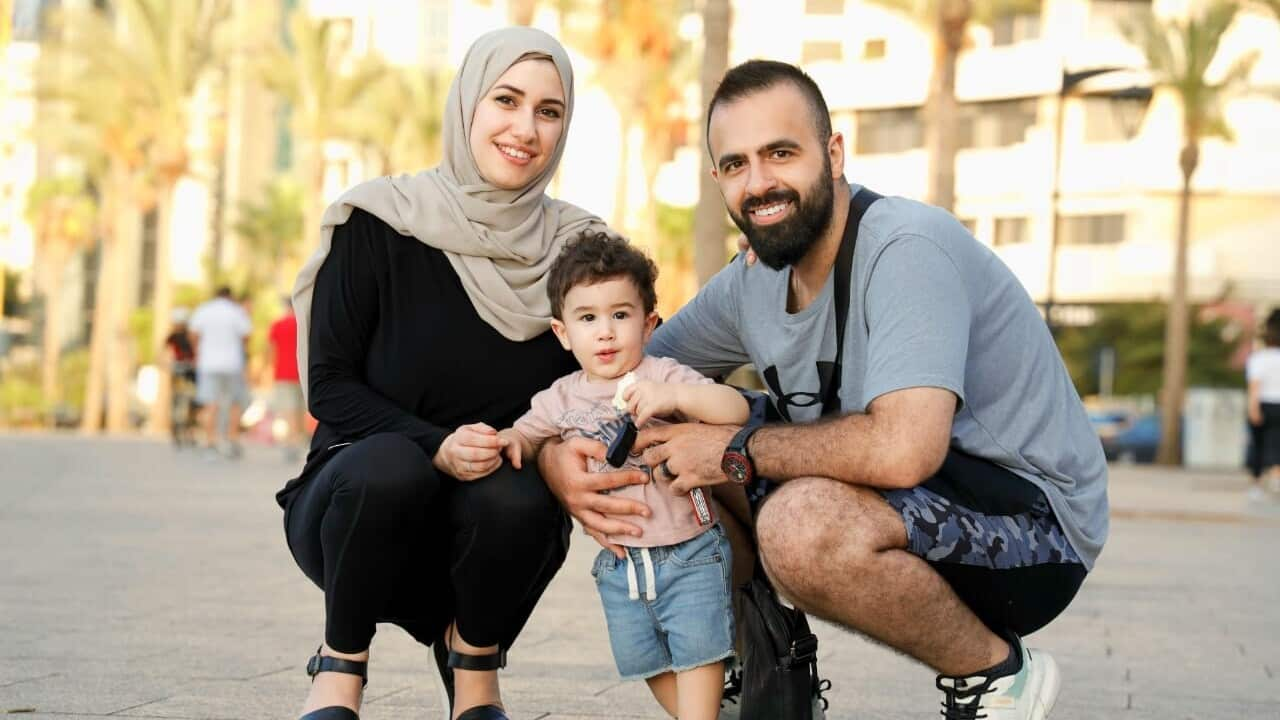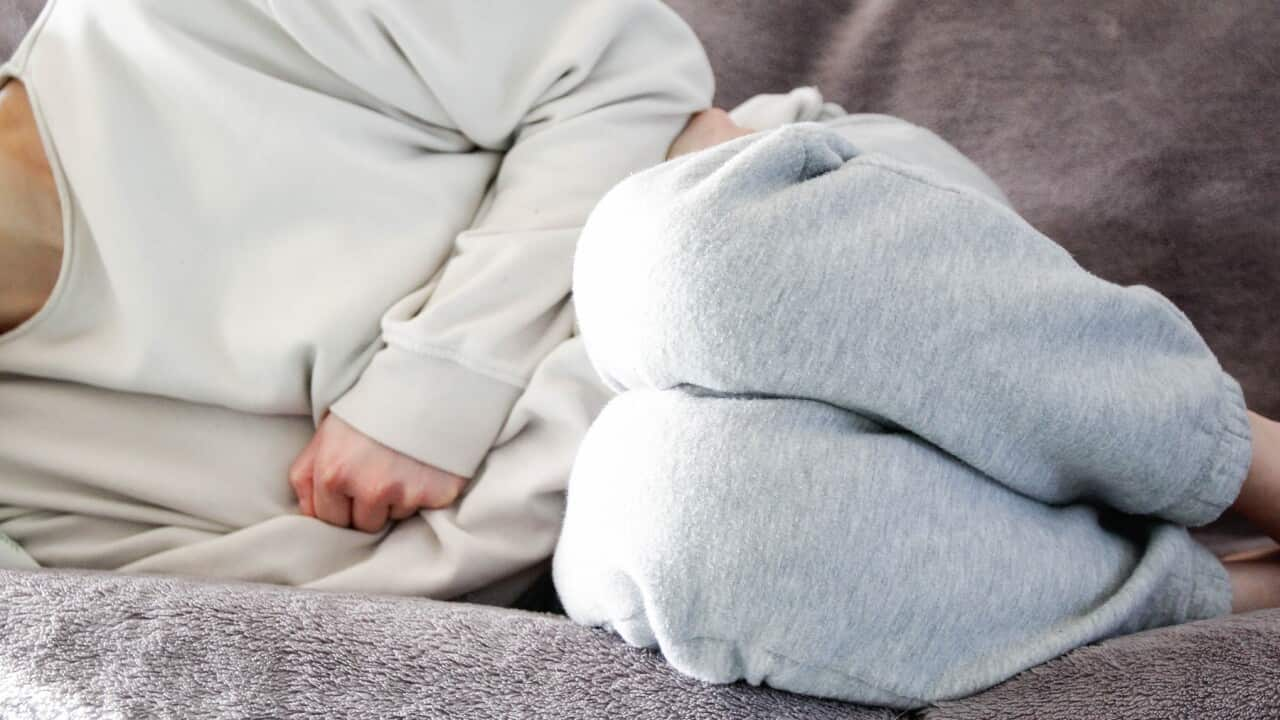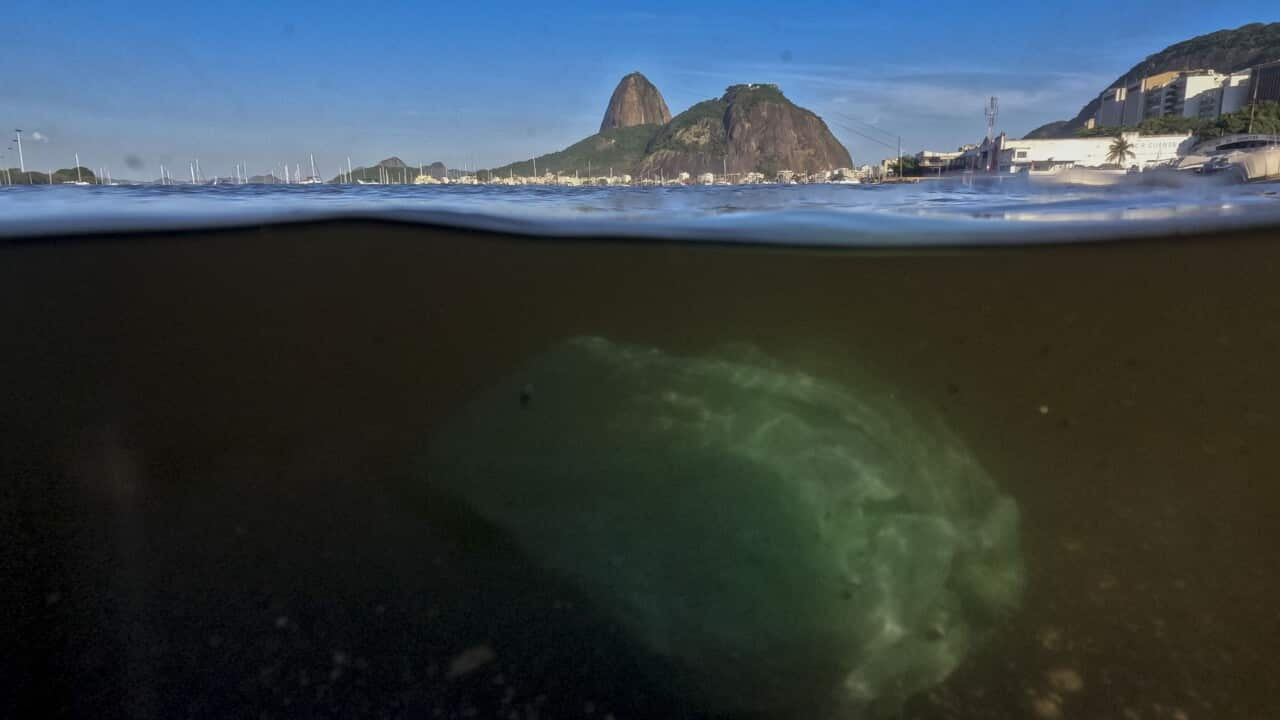TRANSCRIPT
"We're actually basically terrified. We're taking it day by day, doing what we can to survive. But it's absolutely scary. We don't know what the future will hold. We don't know what tomorrow will bring. And I think what's scary about the situation the most is the fact that we have a son. I think if it was just the two of us, it would've still been scary, don't get me wrong, but it's different when you have a child that you need to take care of and make sure that they're safe. And we're unable to do that at the moment. And it's terrifying me."
That's Batoul Hijazi, an Australian citizen and humanitarian worker trapped in Lebanon's capital Beirut.
An Israeli air bombardment of Lebanon has intensified, killing over 620 people over the last several days with a possible all-out war between Israel and Hezbollah looming.
Prime Minister Anthony Albanese has requested all Australians return home immediately to avoid harm.
"We've also been saying to our citizens that they should return home by commercial aircraft while that is available. It will be difficult to get everyone out quickly if that is required which is why people should continue to leave if they can."
But for families like Ms Hijazi's it's not so easy.
Her and her one-year-old son Adam are Australian citizens, but Batoul's husband and Adam's father Abbas Wehbe is Lebanese.
They've applied for a partner and a visitor visa for Abbas so they can join Batoul's family in Arncliffe in Sydney's south but they are still yet to hear word from the government.
“I can leave with Adam, that's not a problem. But the problem is I cannot leave without my husband and Adam's father. A child needs both his parents, and I cannot separate Adam from his dad. He's at the stage where he sees his dad as his role model. He's constantly putting his shoes on his ring, his watch, when he's at work, he's always asking to call him. I'm afraid that if I leave to Australia with Adam, I'll lose all contact and all touch with Abbas. So that's something that I'm totally afraid of. And I'm really scared. So, the security updates like 'leave when you can'. And I think those emails are just frustrating me. I want to leave, I really do. The airport is operating, I want to leave but I can't."
Their immigration lawyer in Australia is George Lombard, Principal Solicitor for PLAYFAIR Legal.
He says he understands each application for a partner or visitor visa needs due consideration but hopes the Department of Home Affairs is able to process Mr Wehbe's with some urgency to get the family out of harm's way.
"Applications of this kind do need to be processed by the department very carefully. We understand that. We hope that the government will be able to do the right thing and look at the situation with compassion and expedition. With every emergency situation, you have to assume the governor's doing the right thing. Normally the department's incredibly quick, but it does have political protocols that it needs to address first, and we understand that. I just hope that the government will be able to do something about this quickly if it can."
(Sounds of missile strike)
For now, the family is hunkering down in Beirut as the bombs ring out across Lebanon.
While cross-border rocket and missile fire between Israel and Hezbollah have been common since Hamas attack on October 7 and the following Israeli assault on Gaza, much of this had been taking place in southern Lebanon - far away from Batoul, Abbas and Adam.
Now, Israel has intensified attacks, targetting areas all over Lebanon including the capital Beirut with a further ground invasion being considered.
Ms Hijazi says her and Abbas do their best to protect Adam who is about to turn two-years-old.
"He doesn't really understand what's going on. So, when they say ignorance is a bliss, he's in that state. But when he does hear something loud, I can see his face. He automatically looks at us like, 'oh, what was that? Am I okay?' And we're terrified, but at the same time we're trying to act collected, so we say 'Oh, oops. Uh oh, mummy-'. And then I keep going."
Mr Wehbe is a pharmacist in Beirut and grew up in Lebanon.
He was 14-years-old during the 2006 Lebanon war between Israel and Hezbollah.
He says the trauma he experienced as a child is motivating him to do everything he can to ensure his son doesn't experience war in the same way.
"I was a child, a teenager. I think it traumatised me, but I was not aware what war means. My father, he was taking care of us. Now it's the opposite. I have a son, I am worried about him. I'm worried how to raise him. I don't want him to be traumatized. I don't want him to hear bombs. I don't want him to smell blood. I want him to be safe."
Their attempts to leave Lebanon mirror the second wave of Lebanese-Australian migration, when the instability of the Arab-Israeli War in 1967 saw a huge influx of people seeking the safety of Australia's shores.
Mr Wehbe says he feels sad about the prospect of leaving his homeland during a time of crisis but, above all, he wants his family safe.
"Home is where my son is safe, where my wife is safe, where my family is safe. Of course, I love Lebanon, but priority is for my son, for my wife, and I believe that wherever my family is safe, secure, I'll be happy. I will work hard in order to make them happy, to ensure that they are in the right place. And I think that Australia the best place."













